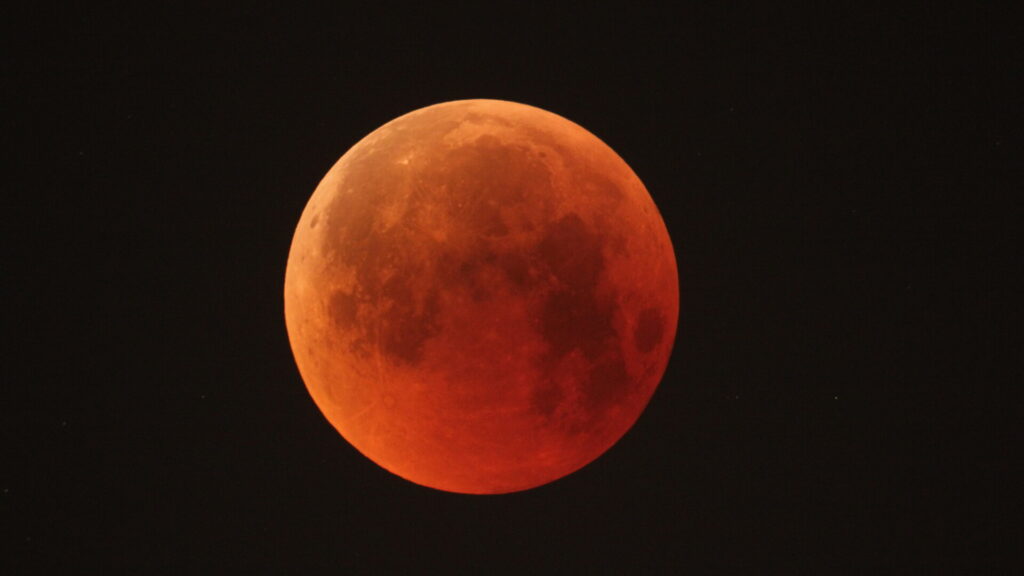
The day that Thanatism was born is to some degree irrelevant. That’s because Thanatism wasn’t ever born–it has evolved. The human conversation that has brought us to the point of being able to articulate some of the things written through these posts is an ancient one, and Thanatism is just another moment in that conversation. Nonetheless, ritual is an important aspect of all faiths and Thanatism should not go without its special day. As such, I’d like us to consider celebrating the day that this particular step in the evolution began with a holiday.
I committed myself to writing down Thanatism at 3am on December 21st, 2010. Often I am wrested from bed because I have had some insight in my half sleep that I feel compelled to record. This, however, was not one of those times. Rather, I had set my alarm to view the lunar eclipse, which was total in my city at that time. As a new parent, I usually valued my sleep more than celestial events at the time, and most such events weren’t particularly visible in the city anyway. That night before going to bed, however, I felt compelled to get up and watch.
When I woke, I walked over to our large picture window with a panoramic view of our city’s skyline. As I looked upward into the sky, out over the man-made landscape, I saw a rusty piece of rock hanging in the sky. It was our moon, but not the moon we usually see. Typically, the moon reflects the light of the sun so brightly that it hardly looks like a sphere at all but more like a brightly glowing disk. When blocked by our planet earth, however, the sun revealed the moon for what it truly is–just a rock hanging in the sky.
In the same way, I hope that the reality of Thanatism can dim the light cast so brightly by society’s fleeing that it can help us see our real selves, in the same way the shadowed sun let me see the moon for what it truly is. Though the social light we all live in is so bright that it is often hard to see us for what we are, I have as little problem with this beautiful social creation as I have with the blinding whiteness of the full moon. I simply believe that it would serve us well to dim that social light occasionally, so we can see us for what we are in the universal context that such light obscures.
This lunar eclipse was meaningful for another reason. It happened to be on the day of the Winter Solstice. That’s the day when North America is tilted furthest away from the sun. Because of this, it is the shortest day and the longest night of the year. Given the dark reality we face as Thanatists, acknowledging this shortest day seems appropriate; however, I think it warrants celebration and for an entirely other reason than its darkness may indicate.
Many ancient cultures celebrated the winter solstice–not as a celebration of death, but rather as a celebration of new life. You see, the solstice isn’t only the shortest day of the year; it is also the end of shortening days and the day from which our days begin to brighten. From December 21st on, every night becomes a little shorter and every day becomes a little longer. Ultimately, this is why I think it is the perfect day to celebrate as Thanatists. Although the day we fully accept our own deaths may be the darkest day of our lives, it is also the end of the darkening of our consciousness. It is the moment where we begin to spend more time in the light, unafraid of what we are.
I’ve been writing these posts over the past year. Given that I first committed to doing so over a decade ago, it was never a certainty that I’d write it at all, and yet here we are. I intend to start publishing these simple posts, once every week or so, beginning on the first day of 2020. I will publish the last of these, this very post itself, at 3am on December 21st. For the rest of that day I may celebrate. I may also mourn. I don’t really know. Either way, it will be a great day for me because it will mean that I have finally had the courage to speak. Ridiculed, beloved or most likely ignored, that is something to celebrate.
My greatest wish, however, is that it will be a day of some hope. It will be the day when I have completed the first step in a mission to rally humanity to fight that which it fears. I have little faith that anyone will heed my call. I have even less that people will respond in the numbers and strength we will need for humanity as a whole to face itself in the real. A little faith, however, is better than none at all.
So that is why I call this day of celebration, mourning, and reflection Some Hope. It isn’t a day of victory, but it isn’t just another day either. It is a day where we have yet another chance as humans to take control of our destiny. A day where we can confront our ultimate fear. A day where we can look at the tragic inevitability of death with the unfailing optimism of the human spirit and declare that if we are willing to work together, there is indeed Some Hope for us all.
